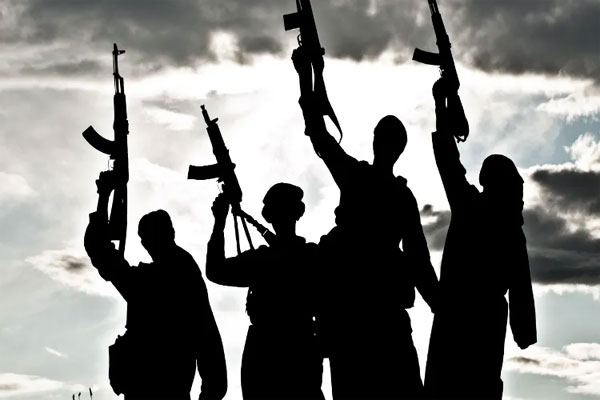Daijiworld Media Network - New Delhi
New Delhi, Nov 8: For Pakistan’s terror networks, the past months have been less about resurgence and more about survival. Following India’s Operation Sindoor, which struck hard at militant bases in Pakistan-occupied Kashmir (PoK), groups such as Lashkar-e-Taiba (LeT) and Jaish-e-Mohammad (JeM) have been forced into another round of relocation—this time deeper into Pakistani territory.
Camps on the Run
Initially, these terror outfits shifted their cadres near the Pakistan–Afghanistan border, setting up temporary camps for retraining and regrouping. However, fresh intelligence inputs from Indian agencies now reveal another wave of movement—this time away from the Afghan frontier. The reason: mounting friction between Islamabad and the Taliban has rendered the border highly volatile, with multiple armed skirmishes reported in recent months.

“The Pakistan Army and ISI are deeply concerned that their training camps near the frontier could become easy targets for Taliban forces,” said a senior intelligence official. “If the Taliban were to strike them, it would be a major humiliation—especially after the Indian strikes under Operation Sindoor.”
Strained Talks and Shaky Ceasefire
Talks between Pakistan and the Afghan Taliban have reportedly stalled. Defence Minister Khawaja Asif admitted that negotiations had “entered an indefinite phase” after the Taliban delegation refused to formalize any agreement in writing. Instead, the Taliban leadership is said to be pushing for informal, verbal assurances—further proof of the deteriorating trust between the two sides.
A fragile ceasefire currently holds, but officials believe it could collapse at any moment. With the border becoming increasingly insecure, Pakistan’s intelligence agencies are scrambling to shift their assets elsewhere.
Moving Inward for Protection
According to intelligence reports, new makeshift terror camps are being established in Rawalpindi and Lahore. These urban areas offer tighter security and greater control for the ISI, ensuring that the camps are guarded by forces not engaged in conflicts with the Taliban or Tehreek-e-Taliban Pakistan (TTP). This move, officials say, is intended to guarantee “exclusive protection” for the militant infrastructure.
Internal Strain and Crumbling Morale
Operation Sindoor has left deep scars—not only in infrastructure but also in morale. The destruction of training facilities and the ISI’s inability to prevent Indian strikes have sown distrust among terrorist cadres. Repeated relocations and Pakistan’s internal battles with both the Taliban and the TTP have further shaken their confidence in the state’s protective machinery.
The TTP, in particular, poses a new threat. Viewing LeT and JeM as proxies of the Pakistani establishment, the TTP has made it clear that these groups are legitimate targets in its war against Islamabad.
Strategy Shift: From Training to Propaganda
Until the ISI can find a permanent fix, terror outfits are reportedly being instructed to focus on urban propaganda activities—rallies, gatherings, and recruitment drives in cities like Lahore and Islamabad. This is aimed at keeping morale intact and maintaining a steady flow of recruits, even as the camps themselves remain in constant motion.
In essence, Pakistan’s militant infrastructure is once again on the run—caught between external strikes, internal rivalries, and the collapsing shield of state protection.